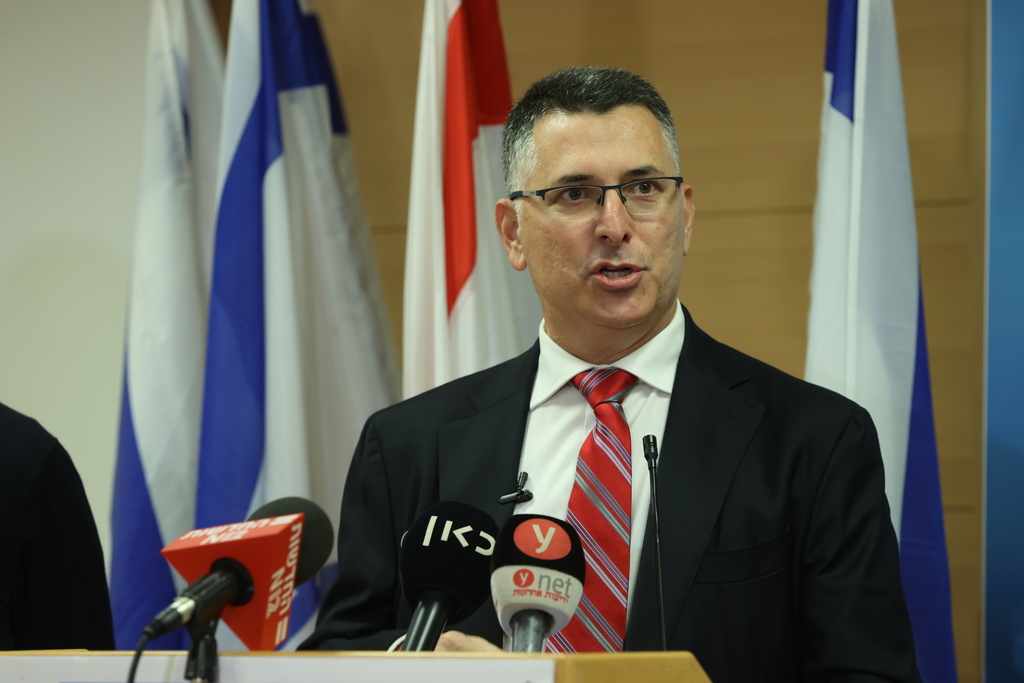With a little over 80 days until Israelis go to the polls for the fourth time in two years, the coronavirus and the ongoing vaccination operation will play a part in electioneering.
The debate among experts is focused on how large an impact this will have on the process and on the final results.
5 View gallery
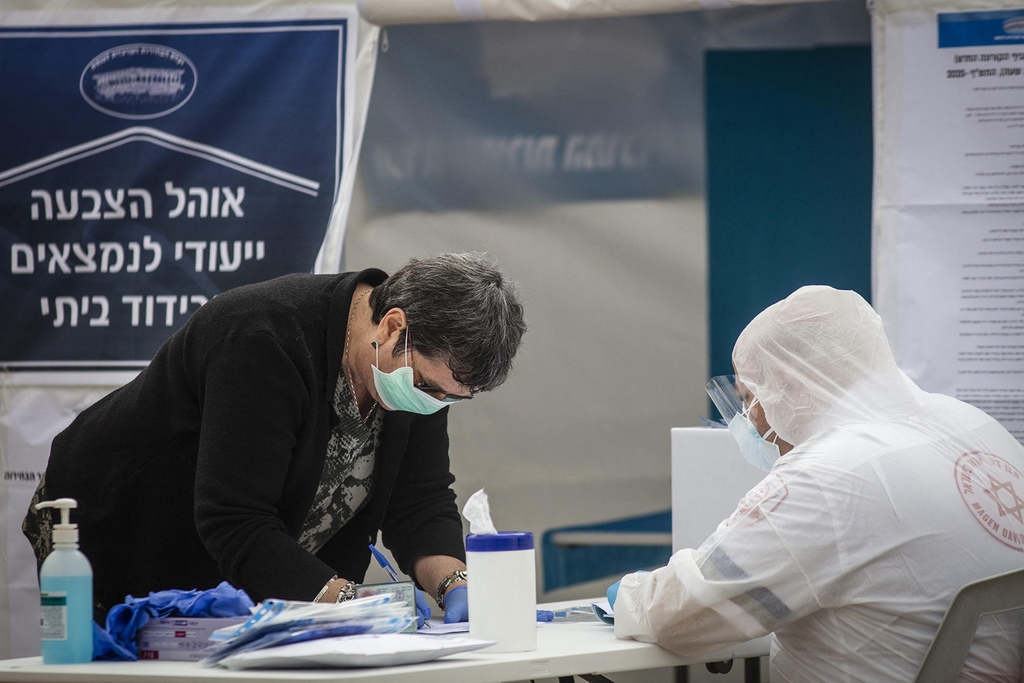

A woman in coronavirus quarantine votes in a specially designated polling station in Israel's March 2020 elections
(Photo: MCT)
The coronavirus pandemic injects itself into two major election categories: technical and political.
On a technical level, Israel’s Central Elections Committee is currently drawing up plans to add around 3,000 new polling stations to the existing network of 11,000 stations.
Some 350 of the new stations will be placed in nursing homes and other facilities catering to the elderly, while the others will be spread through current stations to diminish crowding.
This not only means adding workers but also enhancing precautionary measures such as bringing bottles of hand sanitizer, alcohol wipes, and partitions to protect workers and voters.
Another aspect of the plan is to facilitate drive-in voting and the creation of special quarantine ballots, including extra plastic coverings, for voters who are ill with the virus.
Unlike the U.S., Israel has no arrangements for mail-in ballots, early voting, or digital voting booths. Likewise, with few exceptions such as Foreign Ministry employees and serving members of the military, Israelis abroad on Election Day cannot vote.
5 View gallery
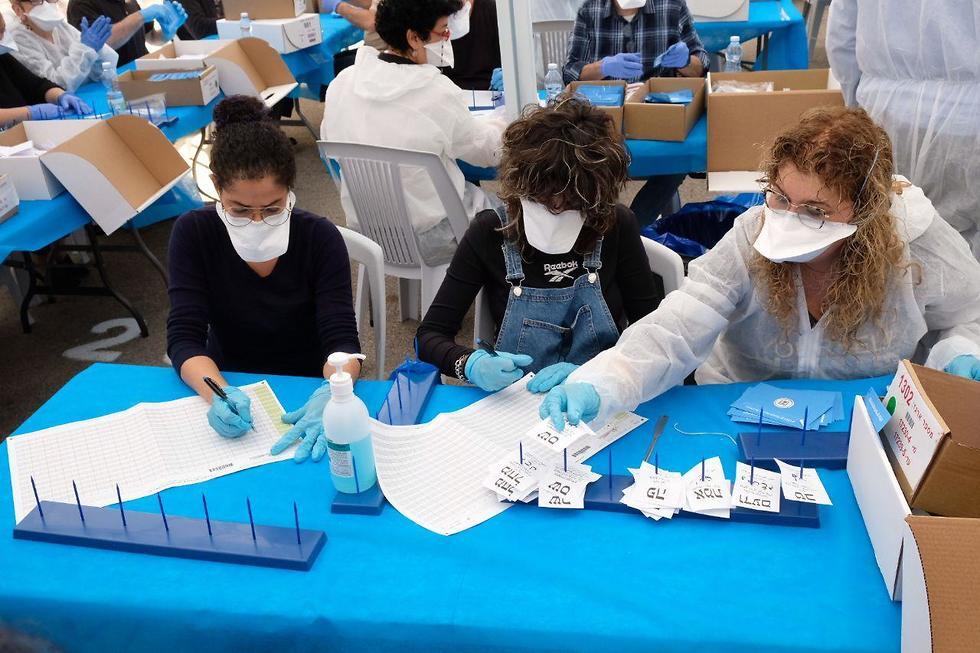

Election officials in protective gear counting ballots of voters in quarantine in March 2020
(Photo: Shaul Golan)
“Around one-fourth of all Israelis don’t vote and it is even more complicated this year [due to the pandemic and uncertainty regarding flights to Israel and quarantine for travelers], for Israelis abroad to come back to Israel to vote,” says Camil Fuchs, professor emeritus of statistics at Tel Aviv University.
During recent elections, airlines had been filled with expat Israelis arriving only to vote and leaving immediately afterward.
“This year, due to the pandemic,” says Fuchs, “Israelis will be cautious about voting if they believe it could make them ill. The Central Elections Committee should add hours. Instead of finishing at 10 pm, they should add a few hours so that people can feel safer.”
The committee should also consider opening polling stations for more than one day, though this will be an issue, as currently, Election Day is a day off for workers and the economy.
“The country should spread out the vote into more than one day to diminish the pressures on voters who do not want to expose themselves to the virus,” says Prof. Dani Filc of the Department of Politics and Government at Ben-Gurion University of the Negev in Be'er Sheva.
5 View gallery
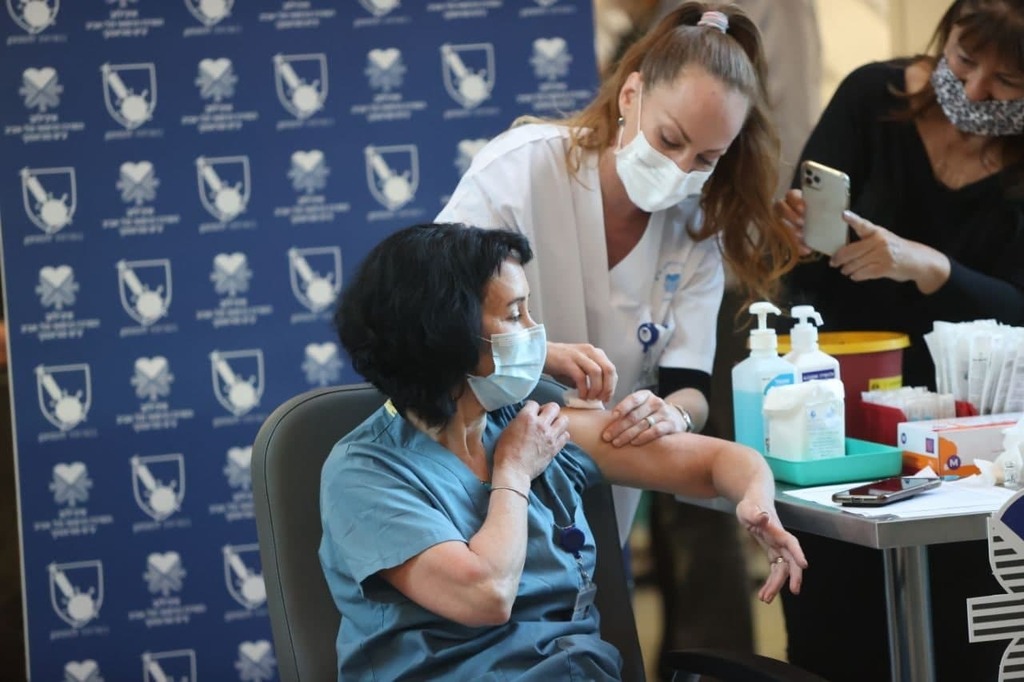

A healthcare professional receives the COVID-19 vaccine at Ichilov Hospital in Tel Aviv
(Photo: Moti Kimchi)
Filc, a pediatrician whose research focuses on health policy, is optimistic about the efficacy of the rollout of vaccinations that could reach a majority of Israelis prior to Election Day, March 23.
“We have about 80 days left and if we inoculate 100,000 daily, we can reach 90% of the populace. I think this is too optimistic but we could reach ‘herd immunity’ levels [between 60 and 70% of the population] before the elections. We have the technical capabilities to do this,” he says.
Filc moderates his optimism, observing that the government’s policy depends on when the country will obtain more vaccines from the producers and the extent to which certain populations, such as the Arab and ultra-Orthodox Jewish communities, will comply with vaccinations.
“We do not have compliance issues such as the U.S. does with the vocal anti-vaxxer movement, but more work needs to be done to convince these populations to get the vaccine,” he says.
On the political side, how the virus and the inoculation effort are framed will be key.
“Management of the coronavirus pandemic and the inoculation operation can be framed either as a success if you are Prime Minister Benjamin Netanyahu or a supporter, or as a failure if you are electioneering against Netanyahu,” says Dr. Assaf Shapira, head of the Political Reform Program at the Israel Democracy Institute.
5 View gallery
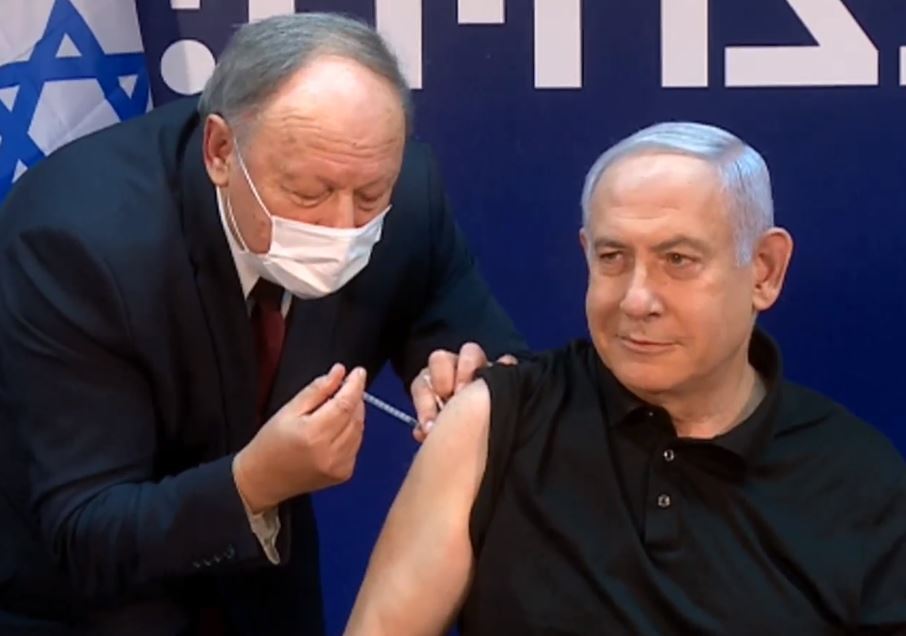

Prime Minister Benjamin Netanyahu becomes the first person in Israel to receive the coronavirus vaccine
(Photo: Screenshot)
Some political parties, such as Naftali Bennett’s right-wing Yamina, he says, are running on a platform that claims the prime minister has failed in managing the country during the pandemic.
“Bennett is very much using the economy and the hardships people are experiencing with their livelihoods – especially during the national lockdowns – to attack Netanyahu,” Shapira says.
“This could be dangerous to his campaign if inoculating the population works and the economy opens up prior to the elections,” he says, especially as many Likud supporters are independent businesspeople who greatly suffer during lockdowns.
Other rightist parties, such as Gideon Sa’ar’s New Hope and Yisrael Beytenu, led by Avigdor Liberman, are not talking about the pandemic or vaccines, but rather focusing on presenting themselves as alternatives to the current prime minister, according to Shapira.
Still, this could change, says Shapira, because former Likud backbencher Dr. Yifat Shasha-Biton is #2 on the New Hope list. As a Likud MK and chair of the Knesset’s coronavirus committee, she was outspoken about the government’s mishandling of the pandemic.
But if Netanyahu continues to be out in front and vocal about the inoculations, he will have success, says Prof. Jonathan Rynhold of the Political Science Department at Bar-Ilan University.
“He can take credit and demonstrate that he very quickly and efficiently brought these inoculations. Here is a direct case of his personal interests and the public’s interests being one and the same,” Rynhold says.
“But of course, if the vaccine doesn’t get to all, someone else will have to take the blame,” he says.
Thus, Netanyahu is beholden to the vaccine suppliers and to the number of doses Israel can obtain before the election.
As political maneuvering continues, what will resonate with the voters? To the experts, it is unclear.
“The short answer,” says Fuchs, “is that we don’t know how much the coronavirus will affect the voting; we just know it will.”


